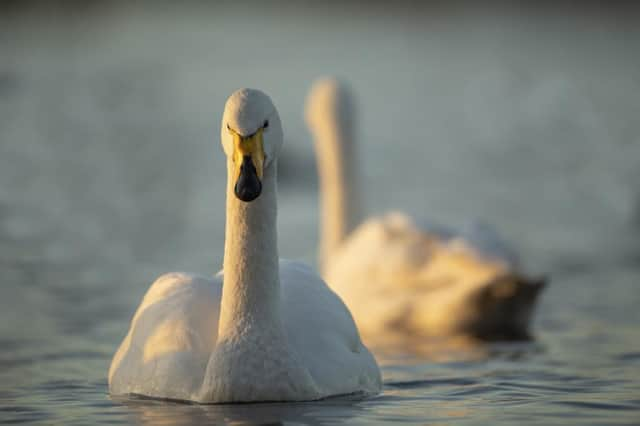RSPB NI: The amazing nature spectacles to look out for this autumn


As the last of our summer visitors such as Swallows and Warblers, fly off in search of another summer, many other birds start arriving to our shores to spend the autumn and winter here. Along our coasts and wetlands, thousands of ducks, geese, swans and wading birds will start to return to our waters.
Migrating knots are beginning to arrive after leaving their summer breeding grounds in the Arctic. These stocky little birds are brick-red in the summer but turn a delicate shade of grey in the winter. They favour estuaries and mudflats, where they will forage for shellfish and worms, before roosting at high tide. They can be spotted alongside the migrant flocks of black-tailed Godwits, Wigeon, Redshanks, Dunlins and Curlews at Belfast’s Window on Wildlife, our nature reserve in Belfast Harbour.
Advertisement
Hide AdAdvertisement
Hide AdListen out for the noisy trumpeting calls which herald the arrival of Whooper Swans from Iceland. High above you might spot them flying in a classic V formation. Our picturesque Portmore Lough reserve is a great place to spot them. They will spend the autumn and winter in large flocks feeding on the fields around the reserve, returning to roost on the lough at dusk.
Meanwhile in our countryside and gardens, some of our autumn visitors can be hidden in plain sight. Bramblings which are often confused with Chaffinches due to their similar shape and size, have already started to arrive. They often mingle with Chaffinches, joining their flocks during the winter months. To distinguish a brambling, look out for its white rump and listen for its nasal ‘te-ehp’ call.
There are many more amazing nature spectacles to look out for this autumn, from fabulous fungi to hedgerow harvests, it’s a magical time to explore outdoors. For more information about visiting RSPB NI nature reserves or to support our work visit: www.rspb.org.uk